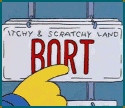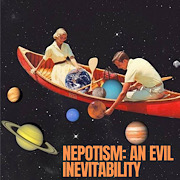|
FreudianSlippers posted:Related: Related to the previous, I wonder if elf is related to the word for river, that it has an origin as a water deity. Wikipedia doesn't mention it, but it mentions "...Old High German alp ('evil spirit'; pl. alpî, elpî; feminine elbe)...". Elbe is a German river, the Norwegian and Danish word for river is "elv", Swedish "älv". And strangely, Norwegian river names tend to be feminine, ending in -a. Driva, Orkla, Glomma. I don't know, on thin ice here, perhaps it's the other way around or just a coincidence.
|
|
|
|

|
| # ? Apr 18, 2024 19:37 |
|
Ghost Leviathan posted:Yeah, a lot of myths and stories use the gods as much or more as representatives of concepts than as actual people/characters. Though also that each god has their own domains and spheres of influence; you don't go praying to Jupiter Optimus Maximus for every little thing when you have more specific domains and household gods. Grand Fromage has posted about this in depth I believe- isn't the roman religion itself (as far as "roman religion" can be definied as a single thing) a combination of a somewhat-defined hellenic pantheon and an older italic tradition much more akin to Shinto?
|
|
|
|
This is great, thanks! Love learning about old traditions and ethymologies, and your post was really informative and well-written.
|
|
|
|
This whole chat about religion and language is awesome and I love all the posts about it. E: also I read the Emma Southon book on murder in Rome and it’s great. It doesn’t bother me at all that she writes like we post in here tbh, and there’s a lot of interesting stuff in there (my favourite is the excerpt from a legal text along the lines of “what should be the penalty if you’re playing proto-football and the ball hits a barber causing him to slip and accidentally cut the throat of the slave that he’s shaving, and how liable should the barber be for setting up shop next to where people play ball regularly, like a total moron, and also how liable should the slave be for sitting in the chair at such a stupidly dangerous barbershop?” (Which gave me flashbacks to law school exam questions). Beefeater1980 fucked around with this message at 14:10 on Apr 25, 2021 |
|
|
|
|
skasion posted:Diogenes would be a hobo who goes viral for jerking his dick at the presidential motorcade but derives no actual gain from his twitter fame How the hell did Diogenes make it to old age without pissing off the wrong guy and getting stabbed?
|
|
|
|
FuturePastNow posted:How the hell did Diogenes make it to old age without pissing off the wrong guy and getting stabbed? The mister burns thing with diseases except for it's assassins and thugs that keep bumbling into each other and fighting to death while he sleeps peacefully.
|
|
|
|
FuturePastNow posted:How the hell did Diogenes make it to old age without pissing off the wrong guy and getting stabbed? Much like Eliot Davis or Richard Stallman in Boston, he was probably not annoying enough for someone not to do that to.
|
|
|
|
FuturePastNow posted:How the hell did Diogenes make it to old age without pissing off the wrong guy and getting stabbed? there were around a dozen homeless guys they just called diogenes
|
|
|
|
FuturePastNow posted:How the hell did Diogenes make it to old age without pissing off the wrong guy and getting stabbed? Well he was exiled from his city of birth and then later, on a different occasion, sold into slavery. He didn't exactly get through life scot-free.
|
|
|
|
Also I think he was lucky enough to arrive in Athens after the political violence had subsided, Athens was basically under Spartan or Macedonian hegemony from then on.
|
|
|
|
Hey guys. Is it correct to think of Minoans as Greeks (proto-Greeks), or should they be thought of as distinct? Obviously they are way before the Myceneans. And no doubt Minoan myth becomes entwined with Greek myth. But... are they Greeks?
|
|
|
|
|
Twat McTwatterson posted:Hey guys. Is it correct to think of Minoans as Greeks (proto-Greeks), or should they be thought of as distinct? Obviously they are way before the Myceneans. And no doubt Minoan myth becomes entwined with Greek myth. But... What’s a Greek? Bronze Age people of any persuasion would have had no clue. I’m gonna say no though. Mycenaeans spoke Greek language, which is about as Greek as you can get 3500 years ago. Minoans had their own language which wasn’t Greek (though probably a good number of them also knew Greek from speaking to Mycenaeans).
|
|
|
|
I'd say no as well, I think it's a very extreme presentist overreach.
|
|
|
|
How fascinating. The myth of Theseus and the Minotaur then is of a Mycenean, Theseus, interacting with Minoans. I mean obviously, I'm just thinking out loud here. This myth must be from the earliest days of the Myceneans then, predating the Trojan War. A particularly old story of the Greeks.
|
|
|
|
Twat McTwatterson posted:How fascinating. The myth of Theseus and the Minotaur then is of a Mycenean, Theseus, interacting with Minoans. I mean obviously, I'm just thinking out loud here. This myth must be from the earliest days of the Myceneans then, predating the Trojan War. A particularly old story of the Greeks. the way "greek" cultures preserved bronze age legends throughout the dark ages but then projected their present geopolitics on them 700+ years later is one of the more fascinating things about the era imo
|
|
|
|
|
Ola posted:Related to the previous, I wonder if elf is related to the word for river, that it has an origin as a water deity. Wikipedia doesn't mention it, but it mentions "...Old High German alp ('evil spirit'; pl. alpî, elpî; feminine elbe)...". Elbe is a German river, the Norwegian and Danish word for river is "elv", Swedish "älv". And strangely, Norwegian river names tend to be feminine, ending in -a. Driva, Orkla, Glomma. I don't know, on thin ice here, perhaps it's the other way around or just a coincidence. I actually looked this up on our German Wiki, and it turns out nope. "Elbe" was literally just called "the river", and the words for rivers and elves have nothing to do with each other. "Elben"/"Elfen" comes from two different roots, one going through words like old Nordic, Russian, Latin and means something like "luminary" or "white, misty creatures made from mist" (sorry, but I couldn't get a translation for "Nebelgestalt" (German) here and had to do a literal translation). The other goes to the old indian / indogermanic " rbhúh", which means some sort of magical handymen, which would explain all those stories about dwarfs/elves being good at forging, baking or shoe making. Bother roots are seen as valid, but which one it is exactly is controversial. The words for "river" sounding similar is completely coincidental, however. The confusion seems to stem from the fact the old Latin name of the river Elbe was "Albis" or "Albia", which apparently according to my online translator can also mean "white", which then crosses over to the Elf-Root describing Elves as spooky mist men Edit: To summarize, elves derive their name either from an ancient indogermanic term for magical artisans, or from descriptive terms like "white/shiny/mist-like". That a lot of rivers also got settled with names deriving from having lots of white foam, being shiny in the sun, etc., is just a coincidence. Libluini fucked around with this message at 14:40 on Apr 30, 2021 |
|
|
|
Interesting, thanks!
|
|
|
|
eke out posted:the way "greek" cultures preserved bronze age legends throughout the dark ages but then projected their present geopolitics on them 700+ years later is one of the more fascinating things about the era imo Isn't that how historiography was basically always done, though? Medieval Europe generally took the idea of society and culture as fixed and unchanging, and so did (as I understand) ancient peoples like Egypt. There's tons of Renaissance and especially Medieval art depicting biblical scenes in contemporary styles and fashion. The idea of examining and studying the past on its own terms, rather than our own, seems like a very recent development to me, unless there's some old counterexample I'm unaware of.
|
|
|
eke out posted:the way "greek" cultures preserved bronze age legends throughout the dark ages but then projected their present geopolitics on them 700+ years later is one of the more fascinating things about the era imo The legends have saturated themselves in my brain and I think about them daily and see them everywhere... every time I pass a mile marker or a pile of rocks I see Hermes there, smiling. They are real to me.
|
|
|
|
|
Fuschia tude posted:Isn't that how historiography was basically always done, though? Medieval Europe generally took the idea of society and culture as fixed and unchanging, and so did (as I understand) ancient peoples like Egypt. There's tons of Renaissance and especially Medieval art depicting biblical scenes in contemporary styles and fashion. The idea of examining and studying the past on its own terms, rather than our own, seems like a very recent development to me, unless there's some old counterexample I'm unaware of. I don't agree with this characterization of how Ancient Egyptians related to their past. They interpreted the past as good and that (most) things about the past should be mimicked whenever possible, which is different from our current Whig historical outlook where the past is bad and something we should run away from ASAP. But that's not the same as believing they had accomplished the goal of continuous preservation. Being the same as the ancients wasn't automatic and was a form of work, and thus why the Egyptians start having court archaeologists during the Middle Kingdom. That said I am interpolating for the Egyptians from a few sources. With China I can say with much more confidence that the dominant narrative for conservative Confucian historiography was that the present was different from the past and this was mostly bad, and thus many arguments for how to reform society were reactionary arguments, very often invoking specific historic figures (I swear the number of times you hear Zhou Gong come up). Even as far back as the Mengzi, there's frequently arguments that the world was fair and just and equitable in the past but that the greed and shortsightedness of more recent people, who have forgotten propriety and fail to keep up the rituals, have lead to economic polarization and natural disasters and internecine violence. It's really kind of the main point of the Mengzi, that the present (in this case The Warring States Period) is a failure that can best be reversed by turning back the social clock a few hundred years.
|
|
|
Fuschia tude posted:Isn't that how historiography was basically always done, though? Medieval Europe generally took the idea of society and culture as fixed and unchanging, and so did (as I understand) ancient peoples like Egypt. There's tons of Renaissance and especially Medieval art depicting biblical scenes in contemporary styles and fashion. The idea of examining and studying the past on its own terms, rather than our own, seems like a very recent development to me, unless there's some old counterexample I'm unaware of. i wasn't saying that it's interesting because they project themselves on the past, it's interesting because the past they're dealing with is almost totally lost to us apart from the surviving literature from the iliad/odyssey onwards (at least with regards to the stories and cultural legacy from that period, obv there's an archaeological record) due to 600 or so years of dark ages where the same cultures literally lost their written language eke out fucked around with this message at 15:51 on Apr 30, 2021 |
|
|
|
|
Fuschia tude posted:Isn't that how historiography was basically always done, though? Medieval Europe generally took the idea of society and culture as fixed and unchanging, and so did (as I understand) ancient peoples like Egypt. There's tons of Renaissance and especially Medieval art depicting biblical scenes in contemporary styles and fashion. The idea of examining and studying the past on its own terms, rather than our own, seems like a very recent development to me, unless there's some old counterexample I'm unaware of. Didn’t thread just have an argument about how people are writing Roman history in Twitter speak to reach people? The point of view that the past was just like the present is alive and well, and with good reason because the more you controvert it, the less useful and worthwhile studying the past seems. The alternatives are to argue that the past was worse than the present in which case people stop caring about it and you have to find something new to write your next book about, or to argue that we should remember the past because it was actually better than what we have now. And quite a lot of people took the latter path in antiquity even if it is unfashionable today. You can find it in Hesiod and even as lately as Gibbon, or just as readily as in that one chapter of the Zhuangzi where the guy opines that allowing people to travel and learn to read is the cause of all modern political problems. We can never know the past the way it knew itself, ultimately we are dependent on something we read in a book or old poo poo someone found lying around. Modern historians with their big ideas of rigor and cultural sensitivity and such try to point out where flaws in our understanding may lie, and try to understand the differences between what we may naively think of ancient times (usually as a result of other, slightly less modern historians) and how people of ancient times thought of themselves. But who knows, maybe there were historians like that in ancient Rome too* and nobody saved their books from entropy because they preferred to read the bit in Suetonius about how the one guy rubbed a crab on a fisherman and buttfucked the flute player. *if there were they probably would have been called antiquarians and not historians tho
|
|
|
skasion posted:Didn’t thread just have an argument about how people are writing Roman history in Twitter speak to reach people? The point of view that the past was just like the present is alive and well, and with good reason because the more you controvert it, the less useful and worthwhile studying the past seems. The alternatives are to argue that the past was worse than the present in which case people stop caring about it and you have to find something new to write your next book about, or to argue that we should remember the past because it was actually better than what we have now. And quite a lot of people took the latter path in antiquity even if it is unfashionable today. You can find it in Hesiod and even as lately as Gibbon, or just as readily as in that one chapter of the Zhuangzi where the guy opines that allowing people to travel and learn to read is the cause of all modern political problems. It is interesting to think of the Greeks worrying over various stories the way people worry about THE FALL OF ROME impacting all sorts of things nowadays or the THUCYDIDES TRAP etc., as if these things are immutable laws.
|
|
|
|
|
Nessus posted:hate and loathe the past, hate and loathe the present, hate and loathe the future been a while since the last thread title
|
|
|
|
Tulip posted:With China I can say with much more confidence that the dominant narrative for conservative Confucian historiography was that the present was different from the past and this was mostly bad, and thus many arguments for how to reform society were reactionary arguments, very often invoking specific historic figures (I swear the number of times you hear Zhou Gong come up). Even as far back as the Mengzi, there's frequently arguments that the world was fair and just and equitable in the past but that the greed and shortsightedness of more recent people, who have forgotten propriety and fail to keep up the rituals, have lead to economic polarization and natural disasters and internecine violence. It's really kind of the main point of the Mengzi, that the present (in this case The Warring States Period) is a failure that can best be reversed by turning back the social clock a few hundred years. Weirds me out sometimes that in a number of significant ways we probably know more about the actual realities of society during the Duke of Zhou's reign today than they did in the time of Mengzi.
|
|
|
|
I've looked around at the different threads and I dont think I see one better than this to ask: Can anyone point me to a good book or even a wiki page about what some of the key technological or social developments that lead to humans building and congregating in cities were? I know there are some basics like animal domestication and agriculture, but I'm curious if there are any other essential parts to it. Thank you! edit: I guess I'll go ahead and provide some context - I'm an aspiring board game designer in my free time and I'm trying to think of some basic / start-of-game technologies for people to have as options in a game that is going to be my own version and a spiritual successor to the Avalon Hill 1980 vintage Civilization. People start off on a map of the fertile crescent with one pop and slowly grow to build cities and buy techs, and I'm trying to think of some early cheap techs that will make building a city more reasonable. AAAAA! Real Muenster fucked around with this message at 18:29 on May 2, 2021 |
|
|
AAAAA! Real Muenster posted:I've looked around at the different threads and I dont think I see one better than this to ask: this is not the most academic source but Tides of History right now is about early humanity and did some recent episodes on early Mesopotamia, e.g.: https://art19.com/shows/tides-of-history/episodes/9971e9f6-8835-43a5-b257-018c54acc048 , covering this exact topic -- wyman's very good about discussing this stuff in approachable terms. i think he also posts his bibliography in his show notes
|
|
|
|
|
AAAAA! Real Muenster posted:I've looked around at the different threads and I dont think I see one better than this to ask: Well, if you look at Sid Meier's spiritual successor to that board game, he started off new players with Roads, Irrigation, and Mining. I'd say some obvious pre-civilization techs you'd need to make settlement possible would include agriculture, herding/animal husbandry, building construction, a unified spoken language with (if not a full writing system) at least some sort of written representation of numbers and types-of-things for bills of lading, and some sort of civic hierarchy.
|
|
|
|
AAAAA! Real Muenster posted:I've looked around at the different threads and I dont think I see one better than this to ask: There's pretty significant disagreement, not helped by the fact that the earliest cities predate writing. Depending on your agenda there's a few things that come to my mind as major factors for early cities in no real order: Agriculture Housing Construction Fortification Beer (not joking, I have seen arguments that this is the most important one) Locks (this is surprisingly important - cities pre and post locks have significantly different layouts and changes in level of stratification) Flood Management/primitive hydrology Pottery (if you want to push back further in time) On top of this there are some "social" techs you could use but these are even more speculative so y'know I'd say it's up to you: Specialization Kingship (frankly this one is very controversial since there are some early republics, though it does seem to precede writing) Trade (this may just be flatly necessary but it might not make sense to you to model as a 'tech') State Religion
|
|
|
|
Its also environmentally dependent, you can get fairly permanent settlements without ag if you hit the sweet spot in location where you basically have year round access to resources and decent weather.
|
|
|
|
Telsa Cola posted:Its also environmentally dependent, you can get fairly permanent settlements without ag if you hit the sweet spot in location where you basically have year round access to resources and decent weather. The only intensive foraging that I ever learned about was in the pacific northwest (and maybe very early west coast of Peru), and gotta say: pretty cool system.
|
|
|
|
Tulip posted:The only intensive foraging that I ever learned about was in the pacific northwest (and maybe very early west coast of Peru), and gotta say: pretty cool system. Coastal Southern California basically hits that sweet spot as well. You get all the ocean resources as well as everything to a certain extent inland, acorns being a big one. Telsa Cola fucked around with this message at 22:21 on May 2, 2021 |
|
|
|
Telsa Cola posted:Its also environmentally dependent, you can get fairly permanent settlements without ag if you hit the sweet spot in location where you basically have year round access to resources and decent weather. or, you build your own sweet spot via nomadic lifestyles - when there are a bunch of fertile and easily accessibly territories which each might be more hospitable at different times of the year you go where the food is and everything is great. iirc you see "summer settlements" and similar in some places. the hypothesis i've heard is that agriculturalist socieities tended to force these people out of the best territories and as such nomads are now only found clutching on to existance in the least hospitable places on earth because that's all that was left. don't know how accurate it is.
|
|
|
|
Tulip posted:The only intensive foraging that I ever learned about was in the pacific northwest (and maybe very early west coast of Peru), and gotta say: pretty cool system. Florida and Japan had it too. The Florida one is actually an interesting case because they had a full-on kingdom with taxes and everything, based entirely on fishing. Though we don't know a ton about it because it was one of those societies that was contacted once by Europeans, then completely collapsed due to disease by the time Europeans next came back.
|
|
|
|
NE Asia also had those intensive foraging settlements as well.
|
|
|
|
Jomon Japan was also a sedentary year-long foraging society.CoolCab posted:or, you build your own sweet spot via nomadic lifestyles - when there are a bunch of fertile and easily accessibly territories which each might be more hospitable at different times of the year you go where the food is and everything is great. iirc you see "summer settlements" and similar in some places. That's probably the case. Maybe at first there wasn't much cross-over, for instance, the LBK farmer migration into Europe did not greatly intersect with European foragers at first, they preferred very specific types of terrain. But eventually their descendants did settle different types of terrain, and the nomadic way of life was superceded. And you literally saw that in recorded history, in the European settler patterns. Europeans boated up, settled on the lushest land (which while not cultivated, was still managed by its occupants), and kicked out the previous occupants.
|
|
|
|
So this might be a silly question, but why weren't any pyramids built bigger than Khufu's at Giza? It seems relatively early in the chronology of the buildings, so it doesn't seem to be the end point of a period where they are getting bigger and bigger, until that was the largest one. Was it built during a period where the economic, cultural and climate conditions made it special? Was it just that Pharoah's decided other things were more important than heigh? I'm far from an Egyptologist, so sorry if this is a dumb question.
|
|
|
|
|
Carillon posted:So this might be a silly question, but why weren't any pyramids built bigger than Khufu's at Giza? It seems relatively early in the chronology of the buildings, so it doesn't seem to be the end point of a period where they are getting bigger and bigger, until that was the largest one. Was it built during a period where the economic, cultural and climate conditions made it special? Was it just that Pharoah's decided other things were more important than heigh? I'm far from an Egyptologist, so sorry if this is a dumb question. Well the simple answer is that it takes a really long time to build those pyramids without modern construction equipment. Khufu's pyramid probably took 25-30 years of work, and that's a long time to employ people (even part time) to build them. It requires a great deal of money to feed and pay them, to acquire the building materials and transport them, etc. It also helps if there aren't any droughts, wars, or other disruptive things happening while you're doing all this building. The Fourth Dynasty of Egypt enjoyed all that. It was a relatively peaceful and prosperous time so they had time to do stuff like this. At least we think it was. As far as I know there aren't really perfect records on that time period. Anyway Khufu dies and his son Khafre does the same thing except he builds his pyramid a little bit smaller as a deferential show of respect to Khufu. Then his son (Khufu's grandson) Menakaure builds his pyramid but it's even smaller, maybe to show respect, or maybe it's just harder to get the materials they need to build these monumental structures. Maybe times aren't as easy as they used to be. After the big three pyramids are done they've spent about 100 years building these things, maybe people are just sick of building pyramids at that point. It's hard to say. Probably some combination of all those factors.
|
|
|
|
Jamwad Hilder posted:Well the simple answer is that it takes a really long time to build those pyramids without modern construction equipment. Khufu's pyramid probably took 25-30 years of work, and that's a long time to employ people (even part time) to build them. It requires a great deal of money to feed and pay them, to acquire the building materials and transport them, etc. It also helps if there aren't any droughts, wars, or other disruptive things happening while you're doing all this building. The Fourth Dynasty of Egypt enjoyed all that. It was a relatively peaceful and prosperous time so they had time to do stuff like this. At least we think it was. As far as I know there aren't really perfect records on that time period. Interestingly, Menakaure's pyramid was unfinished; the workers only carved some of the casing stones flat and then stopped, apparently because the Pharaoh died, so they seemed to already be getting tired of the work even before they finished that third pyramid at Giza. The next and last ruler of the Fourth Dynasty, Shepsekhaf, reigned only eight years and built only a burial mastaba (an abbreviated pyramid, with a flat top) for himself. Then the Fifth Dynasty was founded after him, so there was a lot of of cultural disruption in that time, including religious changes.
|
|
|
|

|
| # ? Apr 18, 2024 19:37 |
|
Carillon posted:So this might be a silly question, but why weren't any pyramids built bigger than Khufu's at Giza? It seems relatively early in the chronology of the buildings, so it doesn't seem to be the end point of a period where they are getting bigger and bigger, until that was the largest one. Was it built during a period where the economic, cultural and climate conditions made it special? Was it just that Pharoah's decided other things were more important than heigh? I'm far from an Egyptologist, so sorry if this is a dumb question. I always thought it was because it maps exactly to the belt of Orion in size and shape.
|
|
|


































